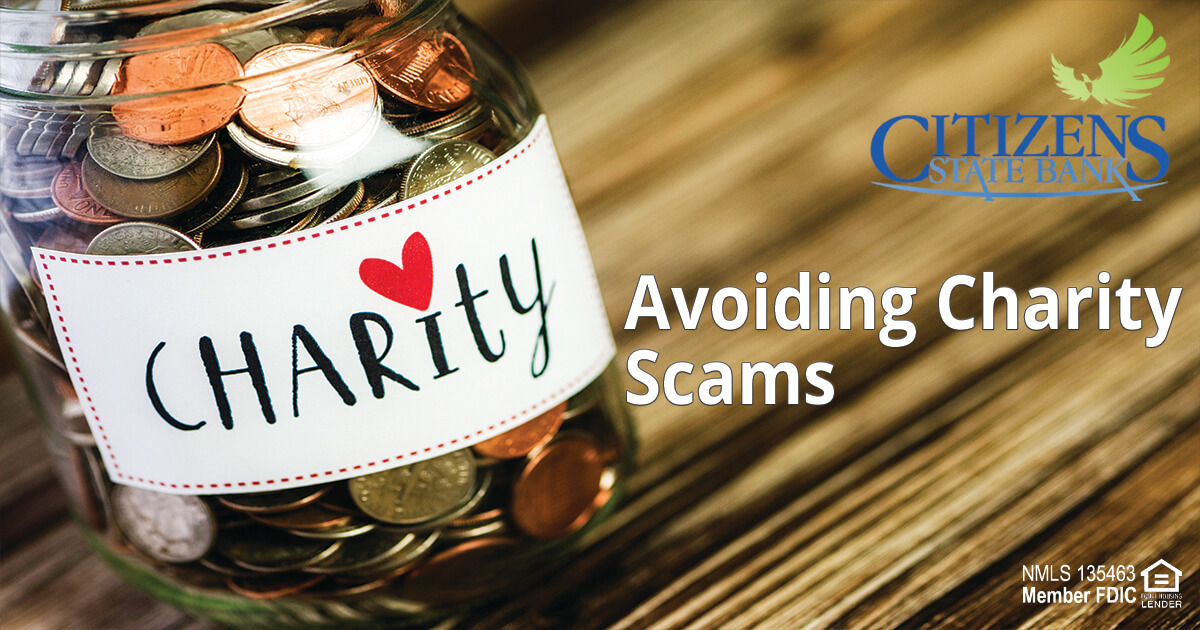If you are considering a donation request, do some research before you give. Finding out as much as you can will help you avoid fraudsters trying to take advantage of your generosity. Here are tips to help make sure your charitable contributions don’t go to a scammer. According to the Federal Trade Commission (FTC), charities and fundraisers (groups that solicit funds on behalf of organizations) use the phone, face-to-face contact, email, the internet ( including social networking sites), and mobile devices to solicit and obtain donations. Naturally, scammers use the same methods to take advantage of your goodwill. Regardless of how they reach you, be cautious of any charity or fundraiser that:
- Refuses to provide detailed information about its identity, mission, costs, and how donations will be used, including what percent of your donation will go to the charity rather than to the caller or the caller’s company.
- Won’t provide proof that a contribution is tax deductible.
- Uses a sound-alike name that closely resembles that of a better-known reputable organization.
- Thanks you for a pledge you don’t remember making
- Uses high-pressure tactics such as trying to get you to donate immediately, without giving you time to do your research.
- Asks for donations in cash or asks you to wire money.
- Offers to send a courier or overnight delivery service to collect the donation immediately.
- Guarantees sweepstakes winnings in exchange for a contribution. By law, you never have to give a donation to be eligible to win a sweepstakes.
Here are some precautions that can help you ensure that your donation benefits the people and organizations you want to help:
- Ask for detailed information about the charity, including the name, address, and telephone number.
- Do some research. Searching the name of the organization online – especially with the word “complaints” or “scam” – is one way to learn about its reputation.
- Find out if the charity or fundraiser must be registered in your state by contacting the National Association of State Charity Officials.
- Check on the charity by contacting the Better Business Bureau’s (BBB) Wise Giving Alliance.
- Call the charity directly. Find out if the organization is aware of the solicitation and has authorized the use of its name. The organization’s development staff should be able to help you.
- If someone calls to solicit a donation, ask if the caller is a paid fund raiser. If so, ask:
- The name of the charity they represent
- The percentage of your donation that will go to the charity
- Keep a record of your donations
- Never send cash or wire money to someone claiming to be a charity
- Do not donate until you’ve thoroughly researched the charity
- Be wary of charities that spring up suddenly in response to current events and natural disasters.
- If a donation request comes from a group claiming to help your local community, ask the local agency if they've heard of the group and are getting financial support.
- What about texting? If you text to donate, the charge will show up on your mobile phone bill. If you’ve asked your mobile phone provider to block premium text messages – texts that cost extra – then you won’t be able to donate this way.
Reporting charity scams:
If you think you’ve been the victim of a charity scam or if a fundraiser has violated Do Not Call rules, file a complaint with the Federal Trade Commission. Your complaints can help detect patterns of wrong-doing and lead to investigations and prosecutions.
The views, information, or opinions expressed in this article are solely those of the author and do not necessarily represent the views of Citizens State Bank and its affiliates, and Citizens State Bank is not responsible for and does not verify the accuracy of any information contained in this article or items hyperlinked within. This is for informational purposes and is no way intended to provide legal advice.
